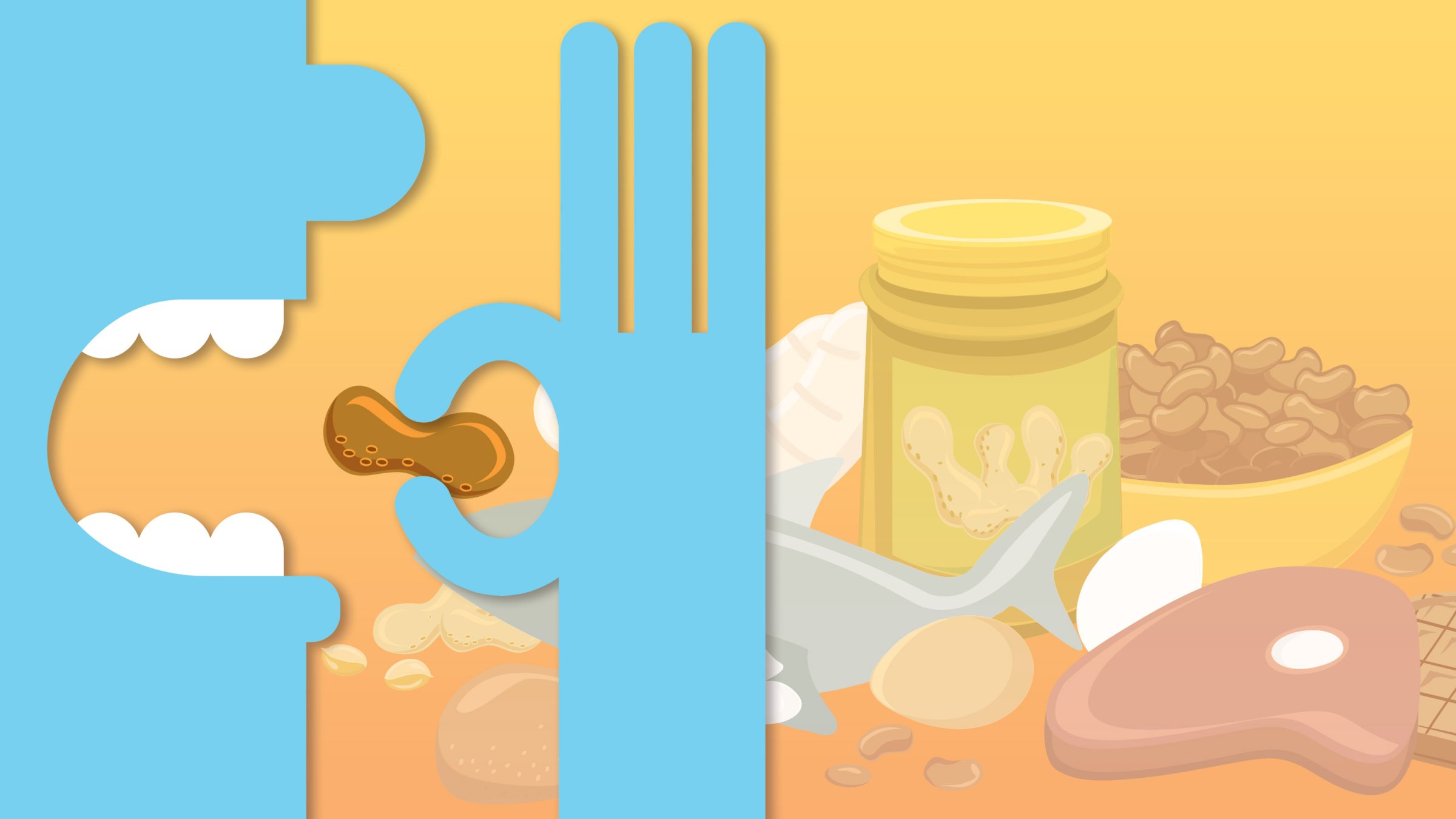
Protein is a hot topic among weight loss and nutrition gurus. Some of the latest research suggests that regular helpings of the macronutrient can help you feel fuller, longer. At the same time, experts are still divided when it comes to the exact amount of protein you need for optimal health.
But all agree that our bodies require the amino acids found in food sources of protein in order to stay healthy.
From the walls of your heart to the muscles wrapping the bones of your arms and legs, protein amino acids are the bricks and mortar your body uses to build its various cellular structures, says Dr. Harold Franch, an associate professor of medicine at Emory University who has studied the many ways the human body uses dietary protein.
Consume too little protein, Franch says, and your body will start tearing down some of its existing structures in order to get the amino acids it needs.
Your system does not perform this self-demolition indiscriminately. “When forced to make a choice, your body will take amino acids from your skeletal muscle in order to supply your heart and some other organs,” says Wayne Campbell, a professor of nutrition science at Purdue University whose research looks at the effects of protein intake on healthy aging.
This loss of skeletal muscle mass happens to everyone as they get older, Campbell explains. Known as sarcopenia, this muscle loss usually begins during people’s 40s or early 50s, and continues steadily for the rest of their lives. “This leads to physical weakness and difficulties balancing and lifting objects, and eventually to frailty,” Campbell says.
Shortchange your body in the protein department, and the age-related breakdown of skeletal muscle can shift into overdrive, he adds. “That doesn’t mean eating lots of protein will prevent sarcopenia,” he says. But eating adequate protein and exercising gives the body the amino acids it needs, which can slow age-related cellular breakdown, he says.
For healthy adults, the effects of eating too little protein are insidious. “There’s this knee-jerk assumption that a lot will go wrong really quickly,” says Douglas Paddon-Jones, a professor at the University of Texas Medical Branch who, with Campbell, has studied the interplay of protein and old age. “But the immediate answer is probably not a lot will happen.”
It helps to compare a body deprived of protein to a house exposed to termites. If the house is solidly built, it could take a long time for the termite damage to cause problems. Likewise, if you’re young and fit, it may be years before the effects of inadequate protein intake show up, Paddon-Jones says. But when they do, look out.
“You’ll be faced with an injury or illness, and you’ll find your immune system’s ability to respond to these crises will be compromised,” he explains. “You might fall, and find you don’t have the strength to catch yourself. Or you might be bedridden with illness for a few weeks, and find your strength and energy slip away very quickly.”
Like that termite-ridden house that looks fine on the outside, your protein-deprived body will have grown weaker over a period of many years. Exactly how will depend on the person and the type of adversity he or she faces. “It’s just not as simple as watching out for a few specific warning signs,” Paddon-Jones says.
Franch agrees. “It’s not going to be possible to self-diagnose a protein deficiency,” he says.
The good news is you’re probably not at risk for one anyway. Almost any type of animal-sourced food—meat, eggs, poultry, fish, dairy—is a complete source of essential amino acids, Paddon-Jones explains. If you’re eating those foods, you probably have nothing to worry about.
Even vegans and other groups that don’t consume animal products can get all the amino acids they need from a mixture of plant-based foods. Soy, peas, nuts and beans are all good sources of many essential amino acids, Campbell says.
If you’re on that sort of restrictive diet—or if you’re older than 65, pregnant or breastfeeding, or fighting a disease or infirmity—talk with a doctor or registered dietitian about your protein intake, Campbell advises. “You really need an expert’s guidance to ensure you’re getting all the nutrients you need.”
More Must-Reads from TIME
- Donald Trump Is TIME's 2024 Person of the Year
- Why We Chose Trump as Person of the Year
- Is Intermittent Fasting Good or Bad for You?
- The 100 Must-Read Books of 2024
- The 20 Best Christmas TV Episodes
- Column: If Optimism Feels Ridiculous Now, Try Hope
- The Future of Climate Action Is Trade Policy
- Merle Bombardieri Is Helping People Make the Baby Decision
Contact us at letters@time.com